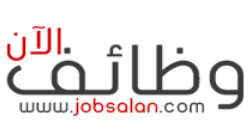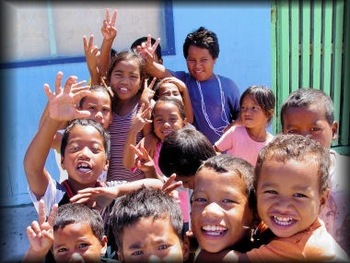ملخص
-
تاريخ التأسيس 30 مارس، 2001
-
المجالات الوظيفية وظائف أصحاب العمل
-
الوظائف المنشورة 0
-
شاهد 71
وصف الشركة
National Training Council – Marshall Islands
RMI Education and Skills Strengthening Project
The Government of the Republic of Marshall Islands has received financing from the World Bank for the Education and Skills Strengthening Project (ESSP) cost. It plans to apply part of the profits for speaking with services.
The consulting services (“the Services”) will assist the Project Manager and the RMI National Training Council in carrying out the World Bank-funded task efficiently.
The project will concentrate on supporting the Project Implementation Unit (PIU) in creating a framework for Recognition of Prior Learning (RPL) for TVET, aimed at assisting the College of the Marshall Islands and the RMI National Training Council examine and improve the abilities of employees through accredited college accreditation.
The comprehensive Terms of Reference (TOR) for the task are shown in the attached Terms of Reference (ToR).
The National Training Council now invites eligible people (“Consultants”) to suggest their interest in offering the Services. Intrigued Consultants need to supply information showing that they have actually the needed certifications and relevant experience to perform the Services (connect a Cover Letter of no more than 4 (4) pages addressing the necessary experience and qualification requirements curriculum vitae with a description of experience in similar assignments, comparable conditions, etc). Firms’ staff might express interest through the utilizing firm for the assignment. In such a scenario, only the experience and certifications of individuals shall be considered in the choice procedure. The criteria for choosing the Consultant are: A.
Mandatory Qualifications and Experience Master’s degree in education, training
, management, or a related field. Minimum of 5-10 years of experience working in TVET System. Curriculum Design and Systems.
Have 2-5 years’ experience creating and
executing RPL. structures, policies, and procedures. A sample of previous work will be required as proof of previous experience. Outstanding communication, training, and assistance
abilities. Experience with dealing with varied stakeholders, including government. agencies, TVET organizations, companies, and students in the Pacific. B. Desired Qualifications and Experience Ability to deal sensitively in a multicultural
environment and develop efficient team relationships with clients and relevant stakeholders. The attention of interested Consultants (including companies )is drawn to paragraphs 3.14, 3.16 and 3.17 of the World Bank’s”
Procurement Regulations for IPF Borrowers “July 2016 revised November 2020” Procurement Regulations “, stating the World Bank’s policy on dispute of interest. Additional details can be obtained at the address below throughout workplace hours, 0900 to 1700 local time. Expressions of interest need to be
delivered in a written kind to the address below (in person or by e-mail )by 5:00 pm, 23rd December 2024.
The subject line ought to state:”National Training Council Strategic Plan Consultant -complete name of the prospect”. Julius Lucky Director National Training [email protected]:Phone: 692 625-4521 Empowering Community Champions for Sustainable Development in RMI Gender Equality, Climate Resilience and Water Safety Training Majuro,
Republic of the Marshall Islands: The 4th
Women and Youth Training for
Gender Equality, Climate Change, Disaster Risk Reduction and Water Safety Management has actually recently taken place at the University of the South Pacific’s campus in Majuro, the Republic of the Marshall Islands(rmi national training council ). This crucial training was organized by the United Nations Development Programme( UNDP )Pacific Office through the Addressing Climate Vulnerability in the Water Sector(ACWA) job. The week-long capacity-building training intended to empower females and youth with the understanding and practices required for climate-resilient water safety management in the
Republic of the Marshall Islands(RMI ). This training strengthens a commitment to improving rmi national training council‘s water security and community strength against environment change effects, specifically women
and youth, making sure that no one is left. The training welcomed participants from all 24 atolls and featured resource speakers from government firms, non-governmental organizations, and international development partners from the RMI Environmental Protection Authority, Climate Change Directorate, Office of the Chief Secretary, Ministry of Culture and Internal Affairs, National Disaster Management Office, Women United Together Marshall Islands, rmi national training council Human Trafficking Task Force, Waan Aelõñ in Majel, Jo-Jikum, and the International Organization for Migration. In her opening remarks, Secretary for the Ministry of Culture and Internal Affairs, Brenda Alik, highlighted the significance of cumulative action in constructing a climate-resilient country.”It is our obligation to come together and collaborate. As we deal with the challenges presented by environment modification, understanding its influence on our water resources is necessary for enhancing the well-being of communities throughout the Marshall Islands,”she said.
RMI Environmental Protection Authority General Manager Moriana Philip highlighted in her speech the vital function of ladies and youth in addressing climate-related difficulties.”This workshop joins us from different communities to attend to the pressing issues we deal with today, including climate-related challenges, particularly on our water resources.”We want to highlight the vital function of women and youth in this project as your participation contributes to its success and beyond, “she stated.
The first day of the workshop covered critical problems related to gender equality, human rights, and public health within the Marshall Islands. It consisted of discussions on gender equality and mainstreaming, concentrating on the effects of climate change on water security and the out of proportion results on susceptible groups. The significance of integrating gender equality and social inclusion into all project aspects was also talked about. Human rights and human trafficking were taken on, stressing the need for comprehensive protection of vulnerable populations
throughout emergency situations. Furthermore, the workshop dealt with gender-based violence, highlighting the various kinds that can occur in catastrophe situations, such as domestic violence and sexual coercion. The program concluded with a focus on sanitation and health and their vital function in health, livelihoods, school attendance, self-respect, and structure durable communities. ACWA Project Manager Koji Kumamaru revealed his gratitude to all participants
, emphasizing the significance of their contributions to their neighborhoods.”Women and youth are crucial to the success of the ACWA job. More notably, you are the champions and future leaders who will return to your neighborhoods to empower others,”he said. During the workshop, participants went to Rongrong Island and examined the 15,000-gallon Flatpack Modular water tank installed at the Rongrong High School Boys Dormitory as part of the ACWA job. The setup is a crucial element of the job, complemented by assistance from Australia
‘s Department of Foreign Affairs and Trade. The check out worked as a valuable firsthand experience of the favorable impact of the ACWA job on the neighborhood and its
water resources. Marie Naisher from Jabat Island expressed her gratitude for the opportunity to join the workshop and made clear her desire to be part of the project when it reaches Jabat.
“This was my very first time taking part in such training, and I learned so much from the visitor speakers, group activities, and the website see. I now comprehend the value of tidy water and how to sterilize it. I’m thrilled about the ACWA project pertaining to Jabat and ready to help when it arrives,”she stated. Don Kobney, an ACWA website planner from Santo, Kwajalein, likewise shared his excitement.”The workshop and site check out increased my confidence and understanding of the water tank installation.
Seeing the 15,000-gallon flatpack modular water tank firsthand offered me a clear understanding of the system, and I’m eagerly anticipating sharing this understanding with my community, “he stated. By the workshop’s end, participants were much better geared up to understand climate modification and its regional impacts, drive adaptation and mitigation efforts, especially in water safety, and make use of new resources to affect their neighborhoods favorably. ACWA is enabled thanks to the assistance of the Green Climate
Fund, with the task co-financed by the Government of the Republic of the Marshall Islands
. The Marshall Islands: Skills Training and Vocational Education Project Evaluates the performance of the task and highlights lessons. Supplies inputs to 2 broader assessments- the local assessment of ADB support for the Pacific and the special assessment research study on Millennium Development Goals. The low instructional attainment and shortage of Marshallese skilled workers were mostly due to the low quality of standard education, lack of access to education in the outer islands, and weaknesses in abilities training and the professional and technical education system.
These supported an economy marked by high joblessness because of constrained economic sector growth and government downsizing. Joblessness was especially high among the youth and females in the external islands. Suitable regional skilled workers for existing job vacancies
were not available, thus the importation of properly skilled foreign employees. Hence, there was a mismatch between offered jobs and abilities of the Marshallese labour force. These conditions offered the effort for the Government
of the Marshall Islands to prioritize technical and employment education training reforms. In 2000, ADB authorized a loan for $9.1 million to improve abilities training to supply trained workers needed for continual financial and social development. This was to be achieved through an integrated national skills training system. The task included 4 parts: development of a profession awareness program, skills training improvement, improved skills training opportunities for females and youth, and institutional fortifying. The anticipated result was increased income-generating chances and work for trainees, specifically females and youth in the external islands. Overall, the task was ranked unsuccessful. Limited progress was accomplished in making the task responsive to the requirements of its recipients and private-sector companies. The long-standing weak point of poor numeracy and literacy competencies
amongst public primary and secondary school graduates and dropouts going into college or attending voc-tech education could be partially attributed to the poor quality of standard education. The project was supply-driven and might not develop a strong linkage with private sector requirements or align its activities with the needs of the labour market. The status of the technical and trade education training system has actually remained essentially the very same after job completion. The research study put forward that ADB could encourage the Government of the Marshall Islands, through consultation and policy discussion, to follow through on the government’s
commitment to establishing a devoted labour information system to connect technical and trade education training program offerings with industry demand. Although the task established a labour market information system, in the absence of in-house staff ability at the National Training Council, it was not completely operational.





